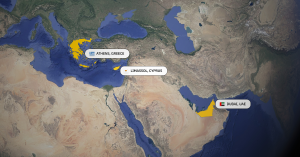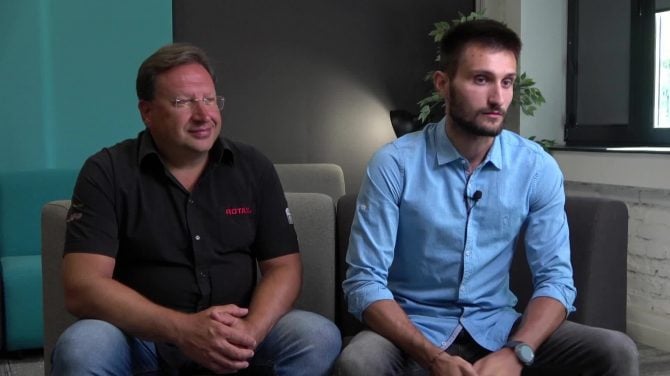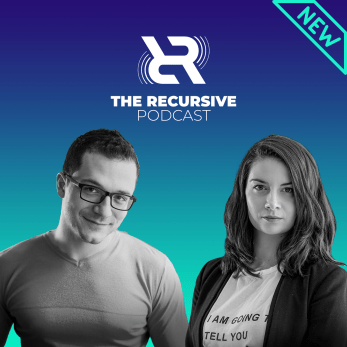Recently, the first AI institute in SEE opened doors in Sofia to grow the Bulgarian scientific community, attract, develop, and retain local and international research talent, as well as accelerate the economic and social innovation impact in the region. The Institute for Computer Science, Artificial Intelligence and Technology (INSAIT) is created in partnership with ETH Zurich and EPFL Lausanne, two of the world’s leading technology universities, and is structured as a special unit of the Sofia University “St. Kliment Ohridski”.
In an interview with Prof. Martin Vechev, the architect of INSAIT, The Recursive explains how the Institute plans to bring the state of AI and computing in the region to a new level through open research, world-class research facilities, and globally competitive compensation.
The Recursive: Ever since you went to study in Cambridge, it has been a dream of yours to create a world-class AI center in Bulgaria? How long did it take to make this dream come true?
Prof. Martin Vechev: I had the dream for a long time. So somewhere around 2003 when I applied to Cambridge, I had to write in my application what my long-term goals would be. And I wrote the idea that I want to create a world-class center institution in Bulgaria similar to Cambridge. And since then, I continue in some way, one form or another, to work on this idea. I created the first exchange program for Bulgarian university students who could visit the world-famous IBM Research Center – the largest industrial research center in the world where I was working at the time. This was around 2009 and 2010. Many people came as exchange students in that program and I wanted to keep this connection. Then we started working more actively on this idea about the center itself somewhere around April 2019. So that’s about three years.
You are a professor at ETH Zürich, but also a co-founder of three successful deep tech startups. How is this unique experience now helping you in structuring INSAIT?
Prof. Martin Vechev: There are a couple of points here. So first of all, a lot of the work that the professors do in these places like ETH Zurich, MIT, Stanford, and Cambridge, has a lot of the elements that are also present when you create startups. So you need to define the problem, you need to raise funding in order to build the group. You need to file documentation, come up with ideas, be very creative about what the problems are and how you solve them, as well as explain them very clearly to people. In the research process itself, there is a lot of that entrepreneurial spirit. And it is also competitive to be working in some of these areas – there are frequent deadlines, there is competition for recruiting students, as well as teaching state-of-the-art courses. And I think that also explains to some degree why many of the deep technology startups are founded in those places. The startup world has its own peculiarities, which are a bit different than academia such as being focused on one single product.
This kind of merge is very healthy and very exciting for me. These are two worlds which are actually not so far apart – it is like different sides of the same coin, and it is all about creating a large-scale impact on society. And then the fundraising aspect especially is something that is done frequently in startups. We also had to do fundraising while forming the INSAIT initiative. That was definitely a startup way of thinking of doing what it takes, not stopping, keep growing, and adjusting on the fly.
In The Recursive’s community there are a lot of startup founders and investors. How about we do an experiment and look at INSAIT as a startup. What would be its USP?
Prof. Martin Vechev: INSAIT is actually an incubator for attracting world-class talent, developing world-class talent, and then building those people up to the point where they are at the top level. Think of them as technological leaders. So the vision is to create the most valuable asset that a country or an ecosystem needs which is the people. The second assets of INSAIT would be the ideas, the research, and the prototypes that are being created there. These prototypes can then be used to create deep tech startups.
Oftentimes, the startup has to pivot and slightly change the product or completely change it. And having a world-class organization on which you can rely for full research access is invaluable. Especially in the longer term. I think this is absolutely unique as a proposition.
Beyond the people and the technology, there is also the impact on the ecosystem and the country which is difficult to quantify. This brings more credibility to international investors who need expert opinion and investment decisions based on complex technologies.
You managed to convince tech giants like Google, Amazon and DeepMind to back the institute. What were your winning arguments for such an institute in Sofia? Why not elsewhere, for example in regions where these companies already have established operations?
Prof. Martin Vechev: There is a very interesting precedent being set here. I think this captures the imagination of these companies as well. Even though they have investments in the region, there is no such Institute anywhere in Eastern Europe. Having such an institute is very vital for establishing their competitive advantage because these companies hire people who are centered around places like MIT or Cambridge. So they know that if they help such a place flourish, they would also potentially get benefits.
The second aspect is about doing joint projects and expanding the outreach in the region. Having a partner that they can trust on and that follows the same world-class operation, makes them more at ease. And of course, they want to make an impact. And INSAIT is all about making a massive impact and they identify with our mission.
On inception, INSAIT received considerable financial support also from the local tech community. Why did they come on board? What is their investment logic, again if we would draw a parallel to the startup world?
Alongside Tenko Nikolov and Ivo Tzenov from SiteGround, INSAIT is backed by Vassil Terziev, Bogomil Balkansky, Ivan Osmak, Atanas Simeonov, Nedelcho Spasov, Stanimir Vassilev, Svetozar Georgiev, Hristo Hristov, Lubo Minchev, and Ivo Evgeniev.Once they saw the potential that INSAIT can have on society, not just in Bulgaria, but in the region, and Europe as a whole, they identified themselves with the mission of INSAIT. It wasn’t so difficult to convince them at all. I’m very happy that local Bulgarian entrepreneurs didn’t dwell too much and too long to invest. I invite others to follow their example because we need all the help we can get.
How will you now use this capital? What will you invest it in? Do you plan to raise additional funds?
Prof. Martin Vechev: From the government, we have raised around $100M over 10 years, however, so on average, we can use roughly $10M per year. With the additional private money from Amazon Web Services, Google, DeepMind, SiteGround, and local entrepreneurs, this comes at around $15M for the first three to four years. The majority of the expenditure goes to recruiting and paying the salaries of the researchers. And then, of course, funds will be invested in the physical location. Our salaries are high and we want to be able to maintain this, so we want to fundraise more. Another point that is often not understood when it comes to running world-class organizations is that we need flexible spending. So maybe five 5% to 15% of the capital goes for flexible spending, like internship programs for science, organizing events, conferences, and bringing people on-site. So we are always open to receiving support from people in any way shape or form.
What do you expect to be the economic but also the societal impact of the scientific research happening in INSAIT on the region?
Prof. Martin Vechev: I feel one of the important bits here with scientific research is that you do research and you discover new things about the way the world works. The target is to get published in the top venues where all of the big players are. And this research is also followed by the research units and divisions of the big companies like DeepMind and Google and OpenAI. This would put Bulgaria at the high end of the innovation map for scientific research. Down the line, the INSAIT brand would be recognized worldwide. And of course, we aim to create deep technological companies based on scientific research, by identifying problems, solving those problems, and going through the whole startup pipeline.
How will INSAIT translate scientific research into deep-tech businesses? Can you share how aspiring but also established deep tech founders can benefit from the Startup Researcher Program?
Prof. Martin Vechev: The connection between world-class science and technological startups is not well understood. At least in Eastern Europe, it is certainly not. And what we want to do in INSAIT as a basic principle is trying to get the best people and give them amazing resources, give them the conditions to dream and work with other people and just let them innovate, let them create. Typically, when people graduate from such institutes or during the process, they form their opinion which way they want to go. Do they want to become startup founders or do they want to become professors? Do they want to be research leaders in organizations like Google or DeepMind? And none is better than the other. What we want to do in INSAIT is to formalize the process that we have been doing at ETH because it is very well documented and can really help these people who want to go to the startup world. The Startup Researcher Program formalizes the steps in the day to day work of doing research that can lead to a deep technological startup. We want to make sure that if they know they want to go the startup way, their research is already positioned in a way where it would yield itself to creating a deep technological startup even before the seed round. It is not an incubator, but it aims to make the researchers think about the problems they are researching. Think of it as doing the first two years of a PhD, but doing it not for the purpose of publishing, but for the purpose of creating companies.
Around 300 researchers and professors are expected to work in the Institute, alongside thousands of computer science master’s students. How do you plan to attract world-class international faculty and graduate students?
Prof. Martin Vechev: One condition is that we offer world class financial conditions which are comparable to those in the top 1% in the world’s best universities in the world. And this has never happened before in Eastern Europe. Then we will give people the resources, not to think about administrative stuff, but just focus on the science, focus on the research, and the technology. Then one very differentiating factor is the freedom that INSAIT offers researchers. And the last point is the country itself. Bulgaria, being in the EU, offers opportunities to apply for EFC grants. Moreover, the impact by unit of work is unmatched anywhere in the world. Because if you do a publication in a top venue and you put Bulgaria on the map it would have a much greater impact and you will inspire a great amount of people to follow your steps.
A problem of which of today’s world challenges would you like to see solved by a breakthrough made at INSAIT?
Prof. Martin Vechev: I think one of the important topics to be addressed is personalized medicine. Using AI is a good way to discover drugs, which can save lives and which are personalized to your DNA, your genetic makeup, or to your current conditions. I’d love to see people at INSAIT to work on it. Again, I’m not someone who tells them what to work on, because they are independent and they can shape the world the way they want. But certainly, drug discovery, and personalized medicine, is one of the challenges and we encourage people in this AI space to be exploring. Fortunately, we already have candidates who are interested in this.





